What to Flush and what NOT to Flush!
This is a topic that might seem obvious to some but surprisingly is a common cause of blocked drains. Due to people’s reactions of panic to the current COVID-19 pandemic, it has left many unable to purchase toilet paper. This is causing them to use other items in place of toilet paper. Given this, we thought it was important to remind you of what you can and cannot flush down your toilet.
Don’t flush things down the toilet, unless you like calling a plumber to regularly unblock your clogged toilet! This is especially important in a block of units; can you imagine how quickly a blocked drain can occur if every unit in your building tried to flush the unflushable?
Flushing items that aren’t meant to be flushed can not only damage your plumbing but is also harmful for the environment. Essentially, the only items we should be flushing are those that easily break down in water and do not contain toxic pollutants.
What to flush?
Human waste
Number ones and number twos are completely fine to flush. That’s what our toilets and sewerage system are designed for!
Toilet paper
Unlike many countries around the world, the Australian sewerage system can cope with flushing toilet paper. Obviously, flushing reasonable amounts at a time is recommended; don’t try to flush the whole roll at once!
Pet poops
Dog and cat excretions are also safe to flush, when collected with toilet paper. Picking up your dog’s stool in a plastic bag and then trying to flush both is almost guaranteed to block your toilet. Similarly, scooping up your cat’s business with some kitty litter stuck to it will also result in a visit from your local plumber.
That’s it! That’s the full list of everything you should be flushing down the toilet. Now let’s dive into what you cannot flush and why.
What not to flush
Baby wipes and flushable wipes
You should not flush ‘flushable’ wet wipes. We’ll let you into a secret, they are not really flushable. Roughly 75% of sewer blockages involve flushed wet wipes that have caused a build-up which led to blocked drains and sewage overflows.
Even though these products are marketed as flushable, this is not the case. The problem is that these products don’t disintegrate like toilet paper does. They end up either clogging your drain or polluting the ocean. The safest option for these items is to throw them in your bathroom bin.
Cotton pads and makeup wipes
Often these products contain high amounts of cotton which is not as biodegradable as toilet paper. Again, these products will not break down but simply clump together and block your drains.
Sanitary products and nappies
These types of products are designed to absorb water and other fluids, therefore making them extremely unsafe for flushing. It is almost guaranteed that these items will cause problems with flushing immediately, and are likely to block your toilet. They are designed to expand with absorption of fluid and therefore may not even pass through your pipes at all.
Paper towels and tissues
Think about how we use these products. They are designed to have maximum absorption with minimal breakage. This is why they are unsuitable for flushing. If you need to use these products in place of toilet paper, the best thing to do is dispose of them in a rubbish bin.
Of course, there are many other items you can’t flush such as medicines, cigarette butts, hair, dental floss and gum. We would hope you aren’t using any of these as replacements for toilet paper though!
Tips for success
If you notice that your toilet starts overflowing, you’ll need to stop the water going into your toilet. To do this, locate the valve behind the toilet and turn it off. If you’re not sure what to do next, we’ve got a handy resource on whether you need a biological or chemical drain treatment.
If an easy home remedy doesn’t fix the problem, you may have a significant blockage. Call Chiswick Plumbing and we can investigate the issue. We offer a clean and cost-effective CCTV drain camera inspection service. This will identify the type and location of the blockage so that we can work with you for the best course of action to take.
Please don’t treat your toilet like a rubbish bin! If you think it should go in the bin, put it in the bin.


